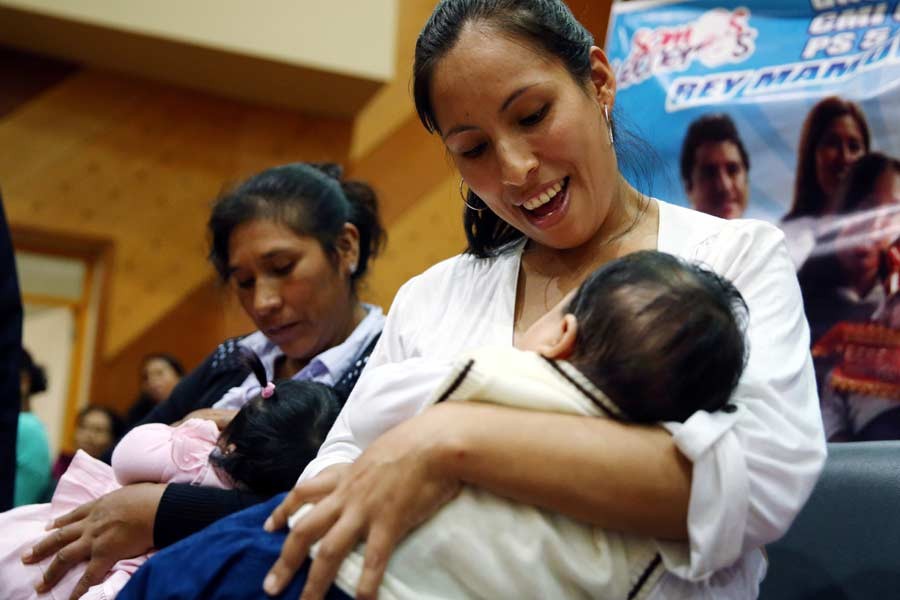UN has urged communities everywhere to “support breastfeeding for a healthier planet” as the World Breastfeeding Week is underway beginning Saturday.
The World Health Organisation (WHO) and the UN Children’s Fund (UNICEF) issued a joint call for governments to protect and promote women’s access to skilled breastfeeding counselling - a critical component of breastfeeding support, reports UNB citing UN News.
The UN has long advocated the benefits of breastfeeding, which delivers health, nutritional and emotional benefits to both children and mothers.
It also helps foster a sustainable food system.
“While breastfeeding is a natural process, it is not always easy,” said UNICEF Executive Director Henrietta Fore, and WHO Director-General Tedros Adhanom Ghebreyesus, in their joint statement.
“Mothers need support – both to get started and to sustain breastfeeding.”
Counselling services
The two top officials noted that skilled counselling services can ensure mothers and families receive this support, along with the information, advice, and reassurance they need to nourish their babies in the best way.
“Breastfeeding counselling can help mothers to build confidence while respecting their individual circumstances and choices”, they added.
“Counselling can empower women to overcome challenges and prevent feeding and care practices that may interfere with optimal breastfeeding, such as the provision of unnecessary liquids, foods, and breastmilk substitutes to infants and young children.”
Improving access to skilled counselling can also extend the duration of breastfeeding and promote exclusive breastfeeding, with benefits for babies, families and economies, they said.
820,000 lives potentially saved
“Indeed, analysis indicates that increasing rates of exclusive breastfeeding could save the lives of 820,000 children every year, generating $302 billion in additional income.”
A variety of different healthcare professionals can provide the expert help needed, such as lactation counsellors and peer support providers - in a variety of clinical settings, or through home visits or community programmes, in person or remotely.
Innovate during COVID crisis
During the COVID-19 pandemic, it is even more important to find innovative solutions to ensure that access to these essential services is not disrupted and that families continue to receive the breastfeeding counselling they need.
During the pandemic, UNICEF and WHO, in line with the policy actions advocated by the UNICEF-WHO-led Global Breastfeeding Collective, are calling on governments to invest to make skilled breastfeeding counselling available to every woman.
Ensuring availability of skilled breastfeeding counselling to every woman will require increased financing for breastfeeding programmes and improved monitoring and implementation of policies, programmes and services, according to the statement shared by the WHO.
The governments are urged to train health care workers, including midwives and nurses, to deliver skilled breastfeeding counselling to mothers and families.
They urged the governments to ensure that counselling is made available as part of routine health and nutrition services that are easily accessible.
The governments are requested to partner and collaborate with civil society and health professional associations, building strong collaborative systems for provision of appropriate counselling.
The WHO and UNICEF urged the governments to protect health care workers from the influence of the baby food industry.
Fore and Tedros, concluded their message with a clear call for united action, on behalf of mothers and babies: “Together, through commitment, concerted action and collaboration, we can ensure that every mother has access to skilled breastfeeding counselling, empowering her to give her baby the best possible start in life.”


